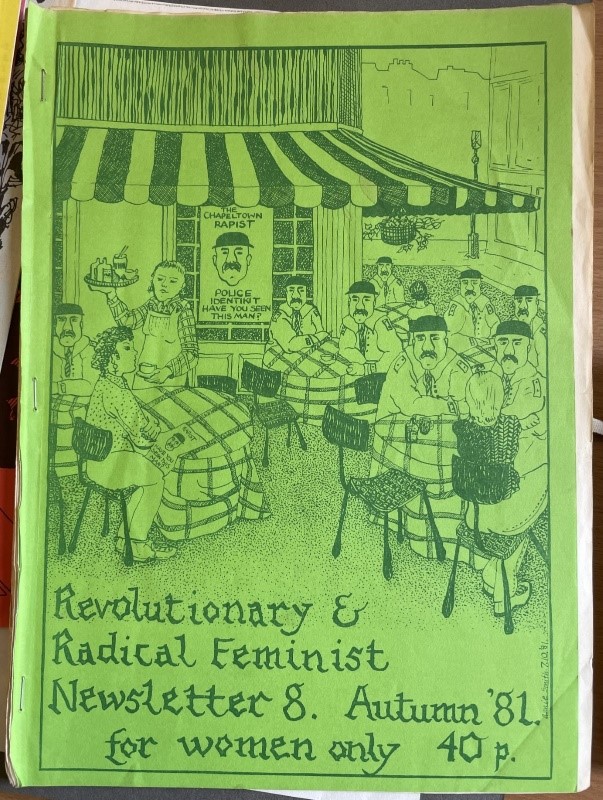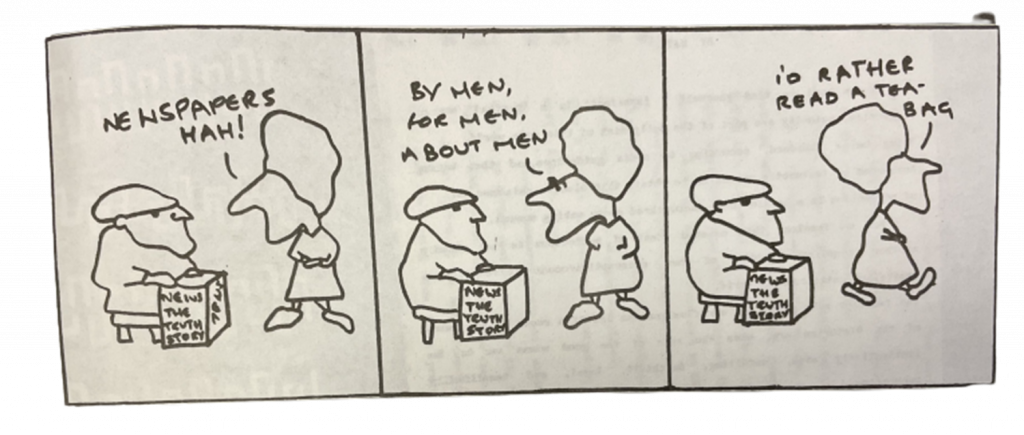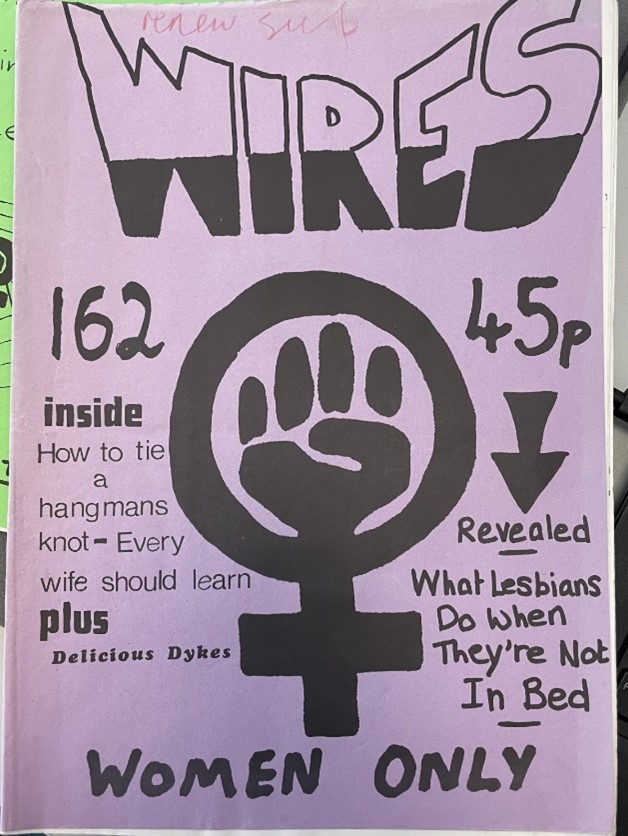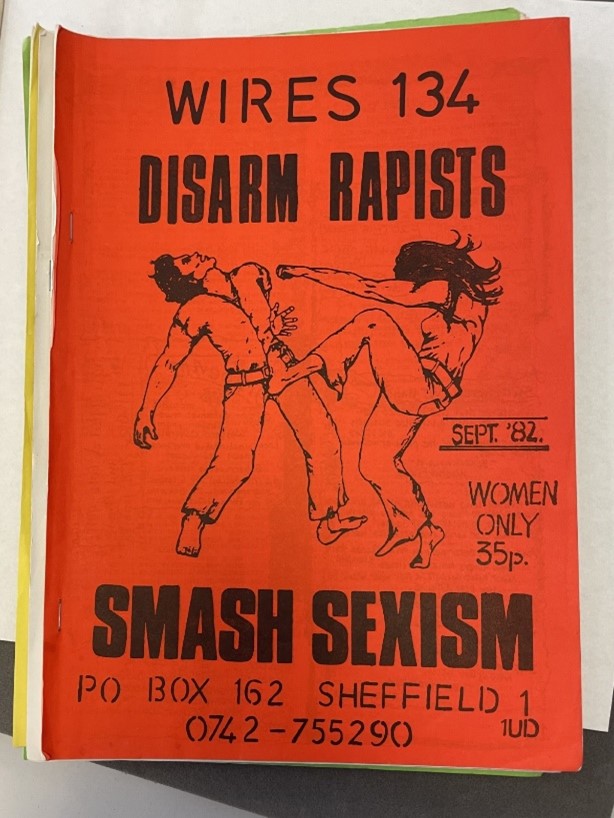September 27, 2023, by Chloe
Working with the Feminist Publications Collection
This is a guest post by Amelia Andrews, a University of Nottingham student, who recently completed a Summer Research Placement at Manuscripts and Special Collections
Hundreds of magazines, newspapers and newsletters from the late 20th century Women’s Liberation Movement have been donated to University of Nottingham Manuscripts and Special Collections department. Ahead of the upcoming Lakeside Arts exhibition on local feminist history, I was tasked to create a database by profiling each publication and answering research questions about them.
As a student going into the final year of my Ancient History degree, I had the opportunity to apply for a summer research placement through the Faculty of Arts’ new placement scheme. After three rounds of applications, I was thrilled to hear that I had secured a placement working with the Feminist Publications Collection. As a passionate feminist myself, this is a project I was eager to get involved with.
As most of the collection had been donated recently, and much not yet catalogued, I was tasked with reading and analysing the (several hundred!) publications. I used Excel spreadsheets to document cataloguing information such as coverage and editors’ details. My role also included researching and recording each publication’s objectives, political alignment, target audience, tone, and production value. Of particular interest for the upcoming exhibition is the literary content, for example poetry, letters, and cartoons produced for sisterly entertainment.

A symbol hybridising the Venus icon with the International Symbol of Access from the Feminist Publications Collection
Some of the subject matter was exactly what you would expect—campaigns for equal pay and better healthcare (free, safe contraceptives and abortions in particular)—but other elements came as a surprise. It’s not uncommon for the odd person of above-student-age to complain about political-correctness, arguing that it wasn’t a concern ‘back in their day’. It was unexpected, then, to come across concepts I assumed emerged in the 21st century, such as ‘compulsory heterosexuality’, and topics I thought weren’t openly discussed until recently, for example disability rights and body image issues caused by the media.
There were also a few of the more radical campaigns that I hadn’t heard about before. Amongst the Women’s Liberation Group’s Seven Demands was the call for free 24-hour nurseries. Obviously, this demand has not been met, and has mostly fizzled out over the last 40 years.

Cover of ‘Revolutionary and Radical Feminist Newsletter 8’ from the Feminist Publications Collection
It was great to get the opportunity to investigate what I found in the collection. The views and campaigns of second-wave feminists were (and still are) often dismissed due to being stereotyped as hairy-legged man-hating anarchists. Having read through the archive, I can say that the hairy-legged man-hating anarchists were making some very valid arguments about sexism that are still relevant today (depressingly).
After a couple of weeks working on the database, I had enough knowledge to begin creating classroom activities for children in Key Stage 2 and Key Stage 4-5. As a significant aspect of modern history, I feel that it is entirely and wrongfully neglected by the current education system. Inspired by the creative artwork and passionate editorials, I decided this collection is perfect for teaching critical source analysis in schools, as a lot of information about each publication can often be decoded from a small snippet.

Cartoon from Resister : Leeds anarchist-feminist paper. Issue 11, January 1988. Feminist Publications Collection Periodicals HQ1193 RES
For example, this comic, which appeared in several publications, is short and humorous. However, it also tells us that women felt neglected by the popular media. Newspapers focussed solely on catering to male audiences, reinforcing the patriarchy. From this, we can understand the motivation for creating women’s magazines—to give women a place to share and communicate their own news, thoughts and ideas.
My experience at MSS has been overwhelmingly positive. I really felt like part of the team, joining in conversations about our pet cats and eventually working up the courage to snag a biscuit during our tea breaks. I’d like to thank everyone for making me feel so welcome and giving me some insight into what a career in archives looks like. To all who get the chance, working with MSC is an enjoyable and worthwhile opportunity!
No comments yet, fill out a comment to be the first



Leave a Reply